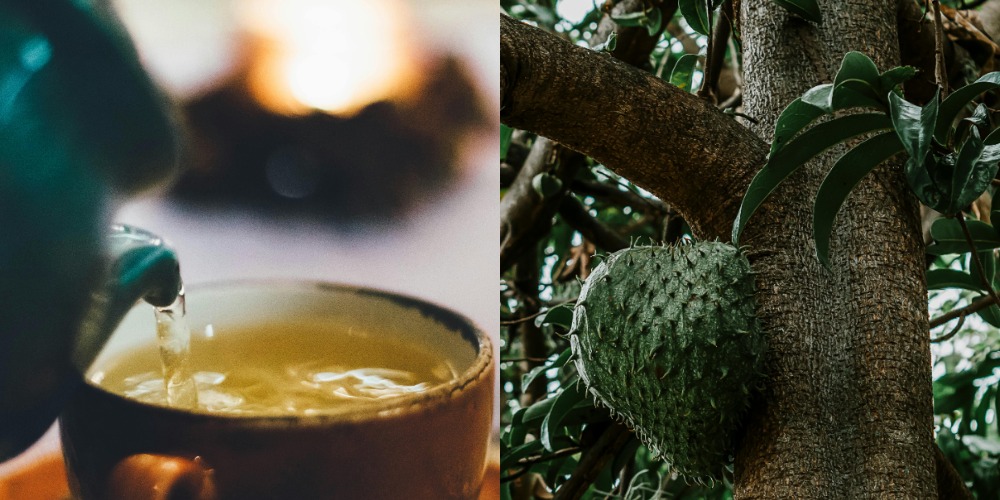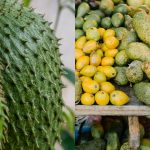Tucked into gardens from the Caribbean to Southeast Asia, the soursop tree has long been valued not only for its fruit but also for its leaves. These leaves, dried and steeped into tea, are part of daily rituals in many parts of the world. In places like Jamaica, Trinidad, the Philippines, and parts of West Africa, soursop leaf tea is brewed to ease the day’s tension, calm the body, and support digestion. But beyond tradition, what’s really in the cup? How do you brew it, and can you drink it every day?
This guide cuts through assumptions and dives into what actually happens when you prepare and sip soursop tea. You’ll find methodical brewing steps, real-world context on frequency and safety, and grounded answers to common questions like caffeine content and pairings with other herbs such as moringa.
What Is Soursop Tea?
Soursop tea is brewed from the dried leaves of the Annona muricata tree, commonly known as soursop or graviola. While the fruit is pulpy and acidic, the leaves used for tea are thin, glossy, and packed with phytochemicals. The tea has a grassy, earthy flavor with mild bitterness, depending on how it’s prepared.
In folk traditions, it has been consumed to support rest, digestion, and immune function. It is caffeine-free and often drunk in the evenings, though some drink it at all hours, warm or iced.
How to Brew Soursop Tea
- 3 to 5 dried soursop leaves (whole and uncrushed)
- 2 to 3 cups of filtered water
- A small saucepan with a lid
- A fine strainer or tea sieve
What You Need:
- Rinse the Leaves
- Simmer, Don’t Boil
- Cover and Steep
- Strain and Serve
Steps:
Briefly rinse the dried soursop leaves under cool water to remove any dust or surface residue.
Add the leaves to water in a saucepan and bring it to a gentle simmer, not a full boil. Boiling can degrade some of the beneficial compounds.
Once simmering, cover the pot and let the leaves steep in hot water for 10 to 15 minutes. The water will darken slightly.
Pour the tea through a strainer into a cup. Drink it warm or let it cool, then refrigerate and enjoy chilled.
Some people add fresh ginger slices or a small piece of cinnamon bark, but the leaves alone provide a full-bodied base.
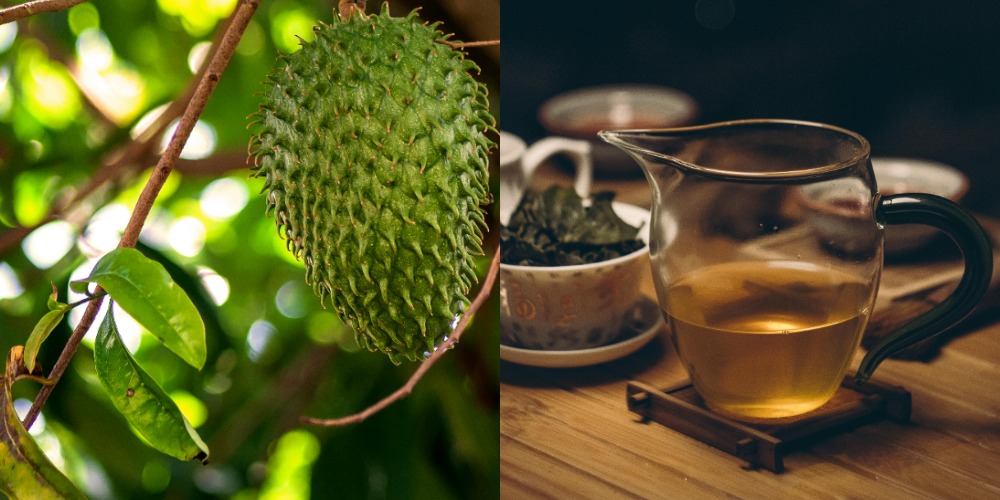
Drinking Soursop Tea Every Day: Is It Safe?
Many people ask: Can I drink soursop tea every day? In general, moderate consumption appears safe for most healthy adults. In countries where the soursop tree grows natively, it is common to drink this tea a few times a week. Some drink it daily for short periods — such as during times of stress or seasonal illness — then take a break.
The concern lies in the plant’s annonacin content, a type of acetogenin found in higher amounts in the seeds and, to a lesser extent, the leaves. Annonacin has been linked in lab studies to neurotoxic effects when consumed in large, concentrated doses over time. These studies typically use purified extracts or isolated compounds, not whole tea.
That said, regular use should be thoughtful. A practical recommendation is to drink soursop tea 3 to 5 times per week, not indefinitely, and to limit intake to one to two cups per day.
Can I Drink Soursop Tea Every Day?
Technically yes, but with moderation and breaks. If using the tea daily, many herbalists suggest doing so for no more than 30 days at a time, followed by a week or two without it. This reduces the chance of build-up of any active compounds and aligns with how traditional cultures often use medicinal plants.
For those managing health conditions, particularly neurological or liver-related, consulting a healthcare provider before daily use is advised. Likewise, avoid combining soursop with medications that affect blood pressure, as it may have mild hypotensive properties.
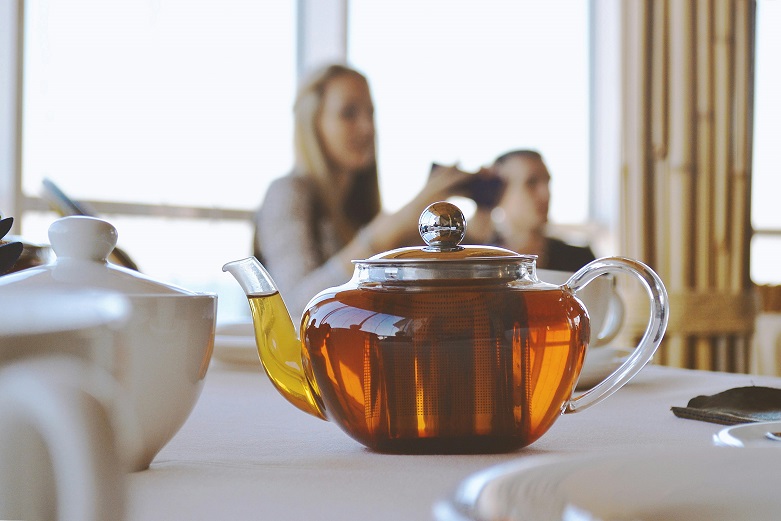
Does Soursop Tea Contain Caffeine?
No. Soursop tea is naturally caffeine-free, which makes it suitable for those avoiding stimulants. Unlike black or green tea, which come from Camellia sinensis and contain both caffeine and tannins, soursop is from a completely different plant family.
Because of this, soursop tea is often consumed in the evening or before bed. Some people even report feeling relaxed or drowsy after drinking it. The cause is likely linked to alkaloids and flavonoids in the leaves, which may affect neurotransmitters tied to sleep regulation.
Combining Moringa and Soursop Tea for Health Benefits
Moringa (Moringa oleifera) and soursop leaves are both widely used in traditional medicine, and many people now combine them in herbal teas. Moringa is known for its nutrient density — especially in vitamins A, C, and iron — while soursop offers calming compounds and antioxidant properties.
Together, they create a tea that is rich in bioactive plant compounds and contains no caffeine. The taste is slightly earthier when moringa is added but remains drinkable and smooth.
How to Brew Them Together:
- 2 dried soursop leaves
- 1 teaspoon dried moringa leaves
- Simmer in 2 to 3 cups water for 10 minutes
- Strain and serve warm or chilled
This combination is popular among people managing inflammation or those who want a nutrient-dense herbal tea without stimulants. Again, limit use to a few times a week if drinking regularly, and take breaks every few weeks.
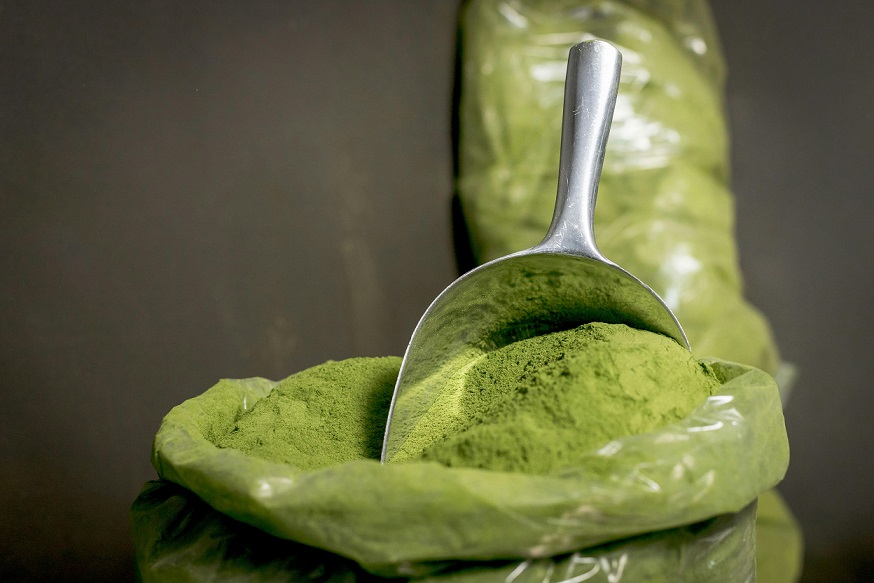
How to Store Soursop Leaves
Dried soursop leaves should be stored in an airtight container, away from moisture, heat, and light. A glass jar in a dark cupboard works well. When stored properly, the leaves can last up to 12 months without significant loss of quality.
Avoid crushing them until you’re ready to use them. Whole leaves retain more of their oils and aroma than powdered or broken ones.
Who Should Avoid Soursop Tea?
While many enjoy it without issue, soursop tea may not be suitable for everyone. You may want to avoid or limit it if:
- You are pregnant or breastfeeding
- You have low blood pressure or take medication for it
- You are managing Parkinson’s disease or other neurological conditions
- You are taking antidepressants or sedatives
Although adverse reactions are rare at normal tea strengths, caution is warranted due to the plant’s neuroactive compounds. If in doubt, consult a medical provider with botanical knowledge.
Flavor Profile and How to Enjoy It
Soursop tea isn’t sweet on its own. It has a neutral-to-bitter base, which pairs well with:
- A teaspoon of raw honey
- A few drops of lime juice
- A slice of ginger during steeping
- A cinnamon stick or clove for spiced versions
Avoid using dairy or heavy sweeteners, which can interfere with the body’s ability to absorb certain antioxidants. Most people drink it warm, but it also makes a refreshing iced tea, particularly in hot climates.
Can Soursop Tea Be Made from Fresh Leaves?
Yes. In fact, in regions where the tree grows, fresh leaves are often used. If using fresh leaves, the method is nearly the same, but you’ll want to rinse them more thoroughly and increase the amount slightly — use 5 to 7 fresh leaves per 3 cups of water.
Fresh leaves have a stronger aroma and a slightly greener flavor, but the benefits and preparation are largely consistent with dried forms.
The Bottom Line
Soursop tea holds a respected place in traditional wellness routines across cultures. While its use should be thoughtful and moderate, it remains a flavorful and calming option in the world of caffeine-free herbal drinks. Whether brewed alone or paired with moringa, soursop leaves can support a daily rhythm when used with care.
Not all plants are meant to be consumed casually every day, and soursop is one of them. But in the right context, with the right preparation, it holds its own — not as a miracle solution, but as a reliable presence in the cup.
